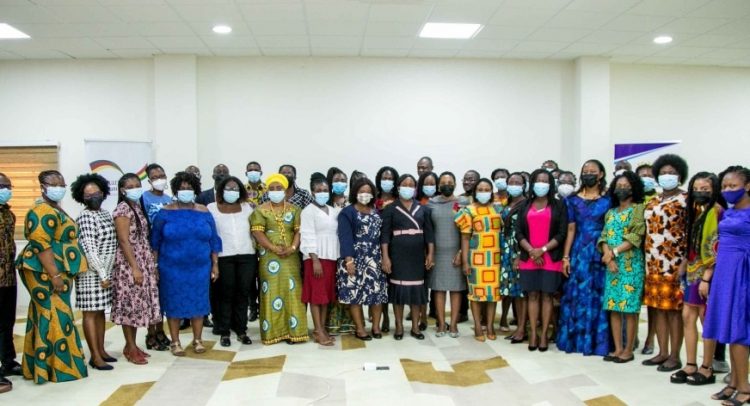A group picture of the participants
GIZ Ghana, through its Programme Migration & Diaspora (PMD), has held a capacity development Workshop to enhance the established capacities of staff of the Ministry of Gender, Children and Social Protection (MoGCSP).
The week-long capacity development workshop took place in Ho in the Volta Region and focused on Human Trafficking, Gender & Migration Governance related topics.
The goal of the workshop is to equip national and regional directors of the Ministry, as well as a cross section of technical staff, with relevant training to efficiently handle issues of human trafficking, migration, gender-based violence, labour migration.
Head of the German Cooperation at the Embassy of the Federal Republic of Germany, Dorothee Dinkelaker, said, “it is our expectation that this training will contribute to the needed capacity development of key management members as well as staff of the Ministry and will contribute to the realisation of Ghana’s general gender policy objectives and objectives outlined in the National Labour and Migration Policies.”
Ms. Dinkelaker added that Ghana has come a long way in bridging the gender gaps in the quest for advocacy on gender related issues in the country. The German Government, is thus, appreciative of Ghana’s current Gender Policy in place.
Addressing participants on behalf of the Minister for Gender, Children & Social Protection, Sarah Adwoa Safo, Chief Director for the Ministry, Dr. Afisah Zakariah, expressed her sincere gratitude to the German Cooperation for supporting the Ministry through the GIZ-Programme Migration & Diaspora in Ghana to undertake this timely capacity development programme.
Dr. Zakariah said, “Ministry of Gender, Children and Social Protection, therefore, views the capacity development initiative as an obligation towards achieving the overarching goal of the Ministry to promote the survival of migrants, ensure social protection for individuals, as well as upholding human rights need of vulnerable persons through building in-depth knowledge and competence of its staff.”

